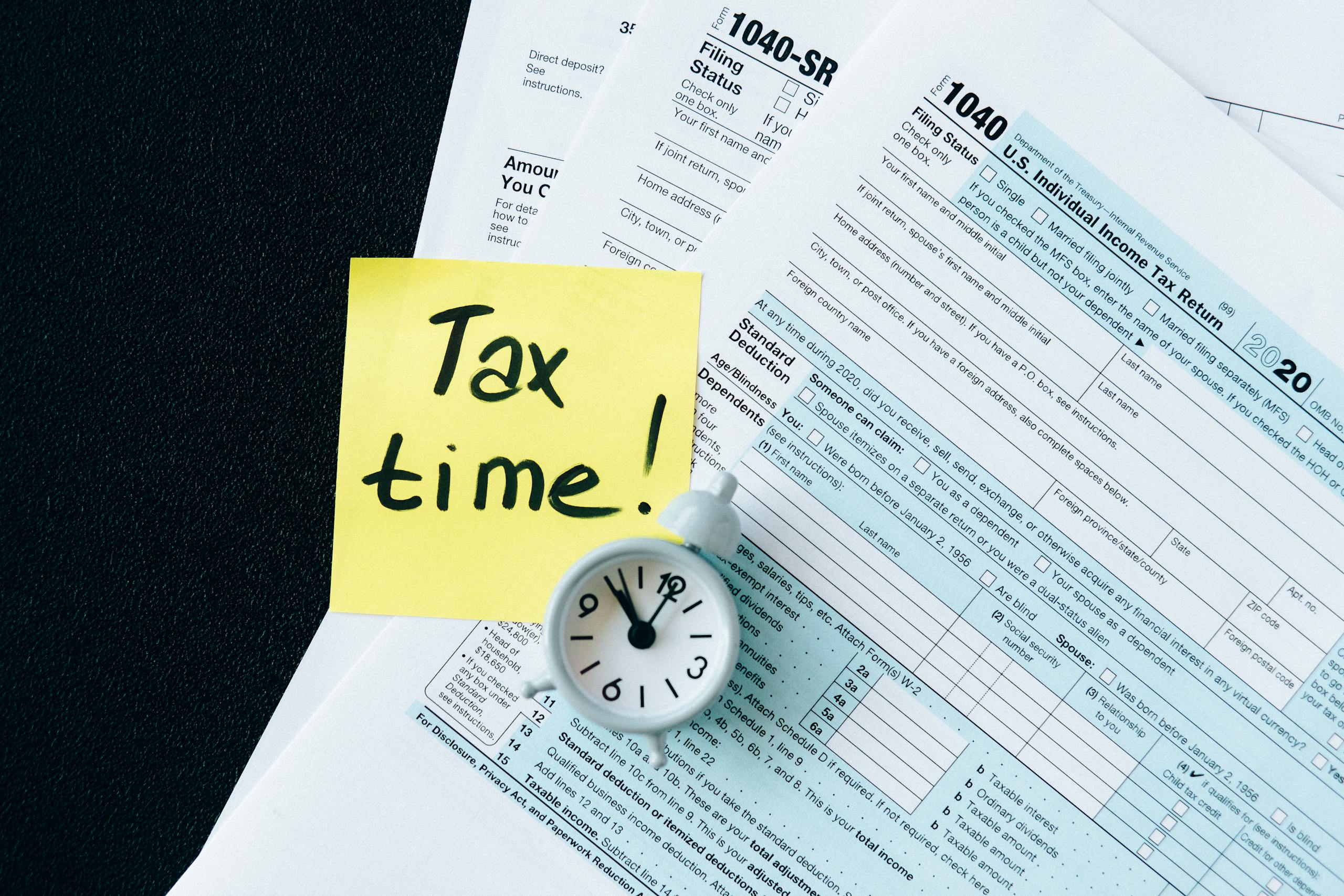Tax Residency for Digital Nomads: Choosing the Best Country for Your Finances
The freedom of the digital nomad lifestyle opens up a world of possibilities, but with that freedom comes the responsibility of making savvy financial decisions—particularly when it comes to tax residency. Establishing the right tax home can be a game-changer for your financial wellbeing, potentially leading to significant tax savings, stronger legal protections, and the peace of mind that comes with knowing your affairs are in order.
But choosing where to plant your tax flag isn’t a decision to take lightly. It involves navigating international tax laws, balancing personal and professional needs, and often wading through complex bureaucratic processes. Whether you’re just starting your nomadic journey or you’ve been living the location-independent life for years, this guide will help you make an informed choice about one of the most important financial decisions you’ll face.
What Is Tax Residency and Why Should Digital Nomads Care?
At its core, tax residency determines which country has the right to tax your income—and potentially your global assets. Unlike citizenship, which typically requires birth or naturalization, tax residency can be established in various ways, often based on factors like physical presence, having a permanent home, or maintaining your primary economic interests in a country.
For digital nomads, understanding tax residency is crucial because:
- It prevents double taxation: Without clear tax residency, you risk being taxed on the same income by multiple countries—a financial nightmare no one wants to face.
- It can significantly reduce your tax burden: Strategic tax residency can dramatically lower what you owe, allowing you to reinvest more of your earnings into your business or lifestyle.
- It provides legal clarity: Having established tax residency gives you a clearer legal status, which can be important for everything from banking to healthcare access.
For deeper insights on avoiding the pitfalls of double taxation, explore this valuable resource on Double Taxation Agreements.
It’s worth noting that tax residency is entirely separate from citizenship. You might be a citizen of one country while maintaining tax residency in another. Many countries have specific criteria for determining tax residency, such as the number of days you physically spend there, where you maintain your permanent home, or where your primary economic interests lie.
For a comprehensive comparison that clarifies these important distinctions, check out this detailed Guide on Tax Residency vs. Citizenship.
Key Factors to Consider When Choosing a Tax Residency
Finding your ideal tax home involves weighing several crucial factors that will impact not just your tax bill, but your quality of life and long-term financial security.
1. Tax Rates and Systems
The most obvious consideration—but not the only one—is how much tax you’ll pay. Countries vary dramatically in their approach:
- Territorial Tax Systems: Countries like Panama and Costa Rica only tax income generated within their borders, meaning your foreign earnings could be entirely tax-free. This setup is particularly advantageous for digital nomads who primarily earn from clients or employers abroad.
- Worldwide Income Systems with Exemptions: Some countries technically tax global income but offer special programs with significant exemptions or reduced rates for qualified residents. Portugal’s Non-Habitual Resident program is a prime example.
- Tax Treaties: These bilateral agreements between countries prevent double taxation and can significantly impact your overall tax situation. Before selecting a tax residency, check whether your chosen country has favorable tax treaties with jurisdictions where you earn income.
For an in-depth look at how territorial taxation can benefit digital nomads, this article on Territorial Taxation offers valuable insights.
2. Residency Requirements and Administrative Processes
Every country has its own set of rules and procedures for establishing tax residency:
- Time Requirements: Some countries require you to spend a minimum number of days annually within their borders—often 183 days, as in Spain—while others have more flexible arrangements.
- Administrative Burden: The paperwork and bureaucracy involved in establishing and maintaining tax residency varies enormously. Countries like Georgia offer streamlined processes with minimal red tape, while others might require multiple visits to government offices, notarized documents, and lengthy waiting periods.
- Renewals: Consider how often you’ll need to renew your residency status and what that process entails. Some countries offer multi-year residency permits, while others require annual renewals.
For a side-by-side comparison of residency requirements across popular digital nomad destinations, this Residency Comparison Guide provides valuable perspective.
3. Cost of Living and Quality of Life
Tax savings mean little if they’re offset by high living costs or a poor quality of life:
- Cost-Benefit Analysis: A country with 0% income tax but exorbitant housing costs and expensive healthcare might actually leave you worse off than a moderate-tax country with affordable living costs.
- Infrastructure: Reliable internet, stable electricity, and efficient public transportation are essential considerations for most digital nomads.
- Healthcare: Access to quality, affordable healthcare can be a decisive factor, especially for long-term planning.
- Lifestyle Fit: Consider climate, culture, language barriers, and social scene—all factors that contribute to your overall happiness and productivity.
For detailed cost of living comparisons across global cities, Numbeo offers comprehensive data to inform your decision.
4. Legal and Political Stability
The stability of your chosen tax home can have profound implications for your long-term security:
- Rule of Law: Countries with strong legal frameworks provide better protection for your assets and business interests.
- Political Environment: Political instability can lead to sudden tax policy changes or currency devaluation, potentially undermining your financial planning.
- Banking System: Access to reliable banking services, international transfers, and currency stability are crucial considerations.
For objective assessments of global governance and stability, the World Bank’s Worldwide Governance Indicators provide valuable metrics to consider in your decision-making.

SHow to Establish Tax Residency: A Step-by-Step Approach
Once you’ve identified your ideal tax home, you’ll need to navigate the process of establishing official residency. While specific requirements vary widely, here’s a general roadmap:
1. Research and Understand Legal Requirements
Before making any moves:
- Consult Official Sources: Government websites typically outline residency requirements, though information may not always be up-to-date or available in English.
- Seek Professional Advice: Tax advisors specializing in international taxation can provide invaluable guidance tailored to your specific situation.
- Connect with Expatriate Communities: Fellow nomads who have successfully established residency can offer practical insights and recommendations.
For guidance on assembling the necessary documentation, this resource on Tax Residency Documentation can help you prepare effectively.
2. Complete the Registration Process
Most countries require formal registration with local authorities:
- Apply for the Appropriate Visa or Permit: This might be a digital nomad visa, an investment residency, or another category that suits your situation.
- Obtain a Tax Identification Number: This unique identifier will be essential for all your tax-related activities in your new home.
- Establish a Local Financial Presence: Opening a bank account demonstrates financial ties to your new country and often simplifies tax payments and day-to-day transactions.
3. Meet and Track Physical Presence Requirements
Many countries use time spent in-country as a key determinant of tax residency:
- The 183-Day Rule: Commonly used in Europe and elsewhere, this rule qualifies you as a tax resident if you spend at least 183 days in the country during the tax year.
- Documentation: Keep meticulous records of your travel, including flight itineraries, accommodation receipts, and border stamps, to prove your physical presence if needed.
- Substantial Presence: Some countries use more complex calculations based on your presence over multiple years, so understand exactly how your time is counted.
4. Fulfill Your Tax Obligations
Once you’ve established residency, maintaining compliance is essential:
- File Required Tax Returns: Mark your calendar for local filing deadlines and understand what forms you’ll need to complete.
- Report Foreign Income: Even in territorial tax systems, you may need to report (though not necessarily pay tax on) foreign income.
- Maintain Records: Keep detailed financial records to support your tax filings and justify your residency status if questioned.
For comprehensive guidance on fulfilling your tax obligations as a global citizen, this Guide to Expat Taxes offers practical advice and insights.
Top Tax Residency Destinations for Digital Nomads
While the perfect tax residency depends on your individual circumstances, these countries consistently rank among the most attractive options for location-independent professionals:
1. Portugal: The European Haven
Portugal has become a digital nomad hotspot thanks to its Non-Habitual Resident (NHR) program, which offers significant tax advantages for up to ten years:
- Tax Benefits: Under the NHR program, foreign-source income is often exempt from Portuguese taxation, while certain high-value activities performed in Portugal enjoy a flat 20% tax rate.
- Lifestyle Perks: With its stunning coastlines, vibrant cities, excellent infrastructure, and generally affordable cost of living (outside premium areas like central Lisbon), Portugal offers an exceptional quality of life.
- EU Access: Portuguese residency grants you freedom of movement throughout the Schengen Area, a significant advantage for European travel.
- Path to Citizenship: After five years of legal residency, you may be eligible for Portuguese citizenship, offering an EU passport with global mobility benefits.
Discover the full advantages of Portugal’s acclaimed program in this comprehensive Guide to Portugal’s Non-Habitual Resident Program.
2. Estonia: The Digital Pioneer
Estonia has revolutionized digital governance with its e-Residency program, creating a particularly attractive option for digital entrepreneurs:
- E-Residency Innovation: This unique program provides a government-issued digital identity that allows you to establish and run an Estonian business remotely, accessing the EU market regardless of your physical location.
- Transparent Taxation: Estonia features a straightforward 20% flat tax on distributed profits, with no tax on reinvested earnings—an entrepreneur-friendly model that encourages business growth.
- Digital Infrastructure: As one of the world’s most digitally advanced societies, Estonia offers exceptional online services, making remote business management remarkably efficient.
Explore the groundbreaking possibilities of Estonia’s digital approach on the official e-Residency Website.
3. Thailand: The Southeast Asian Gem
Thailand combines tropical living with practical advantages for digital nomads:
- Elite Visa Program: Thailand’s tiered Elite Visa offers long-term stay options (5-20 years) without the hassle of frequent visa runs or complex immigration requirements.
- Tax Advantages: Under certain circumstances, income earned outside Thailand may not be subject to Thai taxation, though this requires careful planning and proper documentation.
- Affordable Luxury: From modern apartments in Bangkok to beachfront villas in Koh Samui, Thailand offers exceptional value for money across various lifestyle options.
- World-Class Amenities: With excellent healthcare, vibrant cultural scenes, and diverse natural landscapes, Thailand provides an enriching environment for work and leisure.
Learn more about Thailand’s popular long-term stay option at the Thailand Elite Program Website.
Professional Guidance: Your Most Valuable Investment
Given the complexities of international taxation and the significant financial implications of your choices, professional guidance is not just helpful—it’s essential:
- Specialized Expertise: Look for tax advisors with specific experience in expatriate taxation and digital nomad arrangements, particularly those familiar with both your home country and potential tax residency destinations.
- Holistic Planning: The best advisors consider not just immediate tax benefits but long-term financial goals, including retirement planning, investment strategies, and potential future relocations.
- Ongoing Support: Tax laws change frequently, so continuing professional relationships ensure you stay compliant and optimize your situation as regulations evolve.
Qualified international tax professionals can be found through platforms like Greenback Expat Tax Services and Nomad Tax.
Making Your Decision: The Path to Tax Residence
Choosing the right tax residency is ultimately a deeply personal decision that balances financial optimization with lifestyle preferences and long-term goals. The perfect tax home for you will depend on your income sources, citizenship obligations, family situation, and personal priorities.
Take your time with this important decision. Research thoroughly, consult professionals, connect with others who have made similar moves, and perhaps even visit your top contenders before committing. Remember that tax residency is rarely a permanent choice—as your circumstances and goals evolve, you can adjust your strategy.
The world truly is your oyster as a digital nomad, but with thoughtful planning and informed decisions about your tax residency, you can ensure that your global lifestyle remains financially sustainable and legally sound for years to come.













